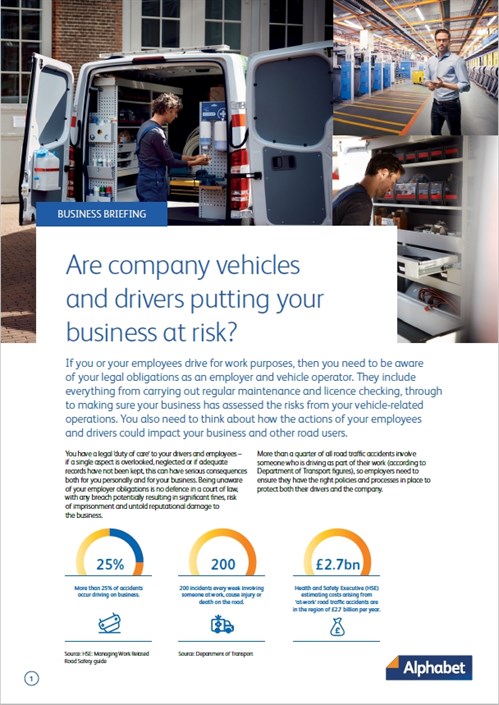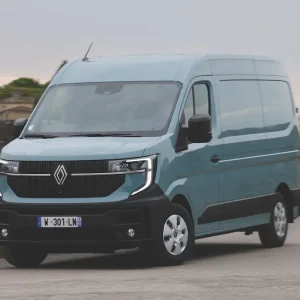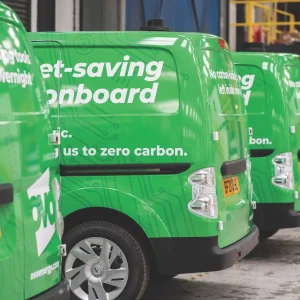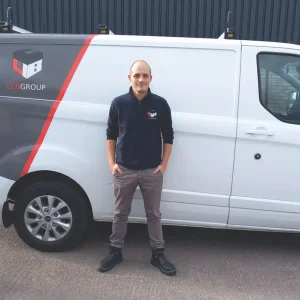The winner of our first Leasing Company of the Year award is a giant of the sector.
Leaseplan was ahead of the game in developing a service aimed specifically at light commercials back in 2011, having realised that vans could not be treated like big cars with fewer windows but required the TLC and attention to detail more commonly bestowed upon HGVs in terms of fleet management and best-practice procedures.
Leaseplan has continued to move forward and claims that the past two years have seen unprecedented change with new suppliers, technology, reporting procedures and training processes being adopted.
A major initiative is the establishment of the Leaseplan Commercial Vehicle Academy. All Leaseplan employees must achieve a Bronze qualification in commercial vehicle knowledge while those employed in dedicated CV roles must go on to achieve Silver and Gold accreditations. Leaseplan claims to be the only leasing company in the industry to have introduced such a requirement.
The bane of the life of operators is vehicle downtime. If vans are stuck in workshops they are losing the business money – an LCV off the road can cost on average £727 a day in lost revenue and costs, according to Leaseplan. To tackle this the firm launched Uptime Live, which integrates fleet management with the use of telematics in real time. Uptime Live combines real-time data and around-the-clock monitoring of scheduled and unscheduled work, with fleet managers able to access up-to-the-minute status checks on every vehicle in a single portal.
Leaseplan identifies when the vehicle will be off-road and finds the best-placed workshop, or mobile technician, to undertake the service. The firm claims Uptime cuts downtime by 50% a year, saving customers £1,400 on average. This in turn slashes customers’ rental costs by up to 90%, says Leaseplan.
An indication of the service’s popularity is Leaseplan’s claim it has been instrumental in securing six major client wins and four contract renewals.
Currently 15% of Leaseplan’s corporate LCV fleet (2,800 units), use Uptime and the firm predicts this will double next year and double again within a further two years.
One satisfied client is project development firm Skanska, which has a fleet of 500 vehicles with Leaseplan UK. Historically, its engineers had their vans serviced at home, which was time-consuming and sometimes required them to take a day off work.
Uptime Live was employed to detect defects before they led to unscheduled service, maintenance and repair (SMR) incidents while Leaseplan instigated a change in SMR practice, with work now carried out at garages close to the engineers’ workplaces, thus minimising the impact on their working routines. Uptime Live was also used to manage the vans according to an agreed best-practice framework.
In a trial of 70 vans 20% were found to be non-compliant, a situation rectified within three weeks, and 63 required SMR within the first 12 months. In the past only half of Skanska’s SMR interventions had been planned, but this improved dramatically using Uptime, with last-minute walk-in workshop visits reducing to just 5%.
Highly Commended: Alphabet
Second past the post is Alphabet. In June it §launched AlphaCity for LCVs, a self-managed solution that gives organisations vans when and where required. Drivers use them only for the time needed, from half an hour to several months.
Vehicles are booked online, accessed via keyless, RFID card tech, and there’s 24/7 customer support. There are no bookings to manage manually and no keys to distribute, which cuts admin.
Alphabet has also introduced four best-practice guides for small businesses covering vehicle choice, specification, funding conversions and minimising downtime, and three business briefings (pictured) to help SMEs and corporate fleets cut costs and manage legislative changes.
Another innovation is Video Handovers, which gives drivers a virtual tour of a new van via their smartphone, while Smartsheet provides customers with clarity on the light commercial vehicle build process, which can cover the funder, dealer, supplier, converter and the ancillary equipment provider.






